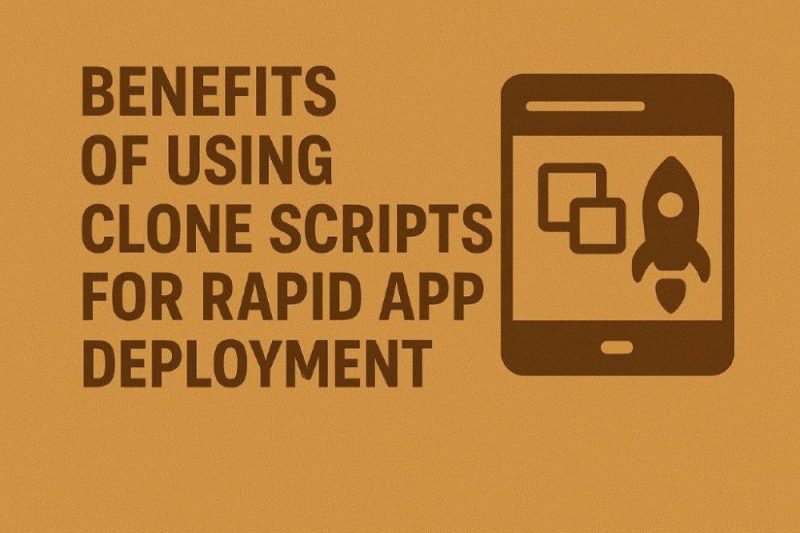Introduction
In the current competitive digital landscape, the speed at which a new application can move from concept to market is usually the determining factor for its success. For entrepreneurs as well as startups operating with limited time and capital, the traditional process of custom app development, which mostly requires many months and also considerable costs, acts as a significant problem. This is where clone scripts arise as a powerful as well as practical alternative. Clone scripts are pre-built, customizable software templates that are capable of replicating the essential functionality as well as established user experience of successful, popular applications. Using these ready-made solutions can assist businesses in avoiding most part of the initial groundwork, which in turn helps in accelerating their time-to-market as well as dedicating resources to growth and differentiation.
Rapid Time-to-Market is Key
The most instant as well as convincing benefit of utilizing a clone script is the considerably decreased time-to-market. Building an application from the ground up mostly involves extensive phases of planning, design, coding, rigorous testing, along with bug fixing, a process which is known to take three to nine months or even longer. On the other hand, clone scripts are capable of avoiding this lengthy cycle because the essential architecture, important features, as well as basic user interface are already complete and tested. With the essential functionality already in place, the development team can completely focus on customization, branding, as well as adding distinct features. This capability also helps businesses in launching a Minimum Viable Product (MVP) in just a matter of weeks, further allowing them to capitalize on current market trends as well as start collecting important user feedback far sooner than their custom-developing competitors.
Significant Cost Efficiency
Apart from speed, clone scripts offer exceptional cost-effectiveness. Also, the high cost of custom mobile app development requires a full-fledged team of designers, developers, and quality assurance testers to build the entire system from scratch. Clone scripts, conversely, are available at a fraction of the price of a custom build, making them an ideal solution for startups and small businesses with constrained budgets. Further, companies essentially save money on foundational development, design, and mobile application testing by purchasing a tested source code package. Thus, this reduction in initial investment reduces capital expenditure which is then used towards critical post-launch activities, such as marketing, user acquisition, and advanced feature development.
Leveraging Proven Business Models and UX
The major advantage lies in the proven business model and user experience (UX) as clone scripts are molded after applications that have already achieved success. Additionally, millions of users have validated the core concept, workflow, and feature of clone scripts. This dramatically reduces the risk associated with launching a new product. Also, users are already familiar with the flow and functionality of established apps, which turns into a smoother, more intuitive onboarding experience for the users. Thus, the tested UX minimizes the need for extensive user research as well as design repetition, allowing the business to stand on a strong foundation of known user acceptance.
Flexibility for Customization and Scalability
Even though the term “clone” may propose a simple copy, most clone scripts are designed to be highly scalable as well as customizable. Clone scripts offer a white-label foundation, which in turn enables businesses to easily brand the application with their own distinct logo, colors, as well as content. Clone scripts also serve as a platform which allows layering of custom, distinctive features. This flexibility helps in making sure that the final product is not just an imitation, rather it is a distinct offering that is tailored to niche market requirements as well as specific customer needs. Also, a well-coded clone script is mostly built with scalability in mind, which means that its architecture is capable of handling growth in user base as well as facilitating addition of complex functionalities over time, in turn offering a sustainable platform for long-term business expansion.
Conclusion
For startups as well as companies that are motivated to secure a quick position in the digital industry, the advantages of using clone scripts for rapid app deployment are assured. They represent a credible strategy which offers a practical product with high speed, less cost, as well as basis of proven success. Further, by presenting a reliable base, clone scripts allow developers to transfer focus from laborious tasks of basic coding to the strategic requirements of market validation and product variation. The fast-tracked path results in quick launching time and allows companies to start their revenue creation as well as iterative progress cycles sooner than expected. This in turn offers a much needed competitive edge in the fast-moving digital economy.
